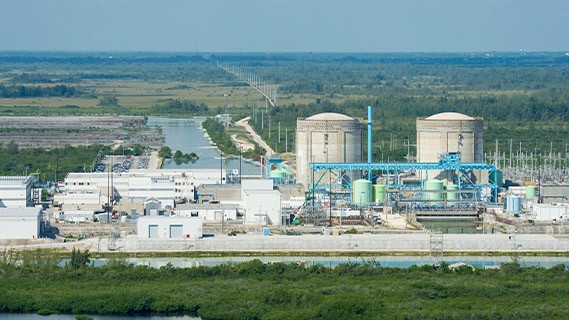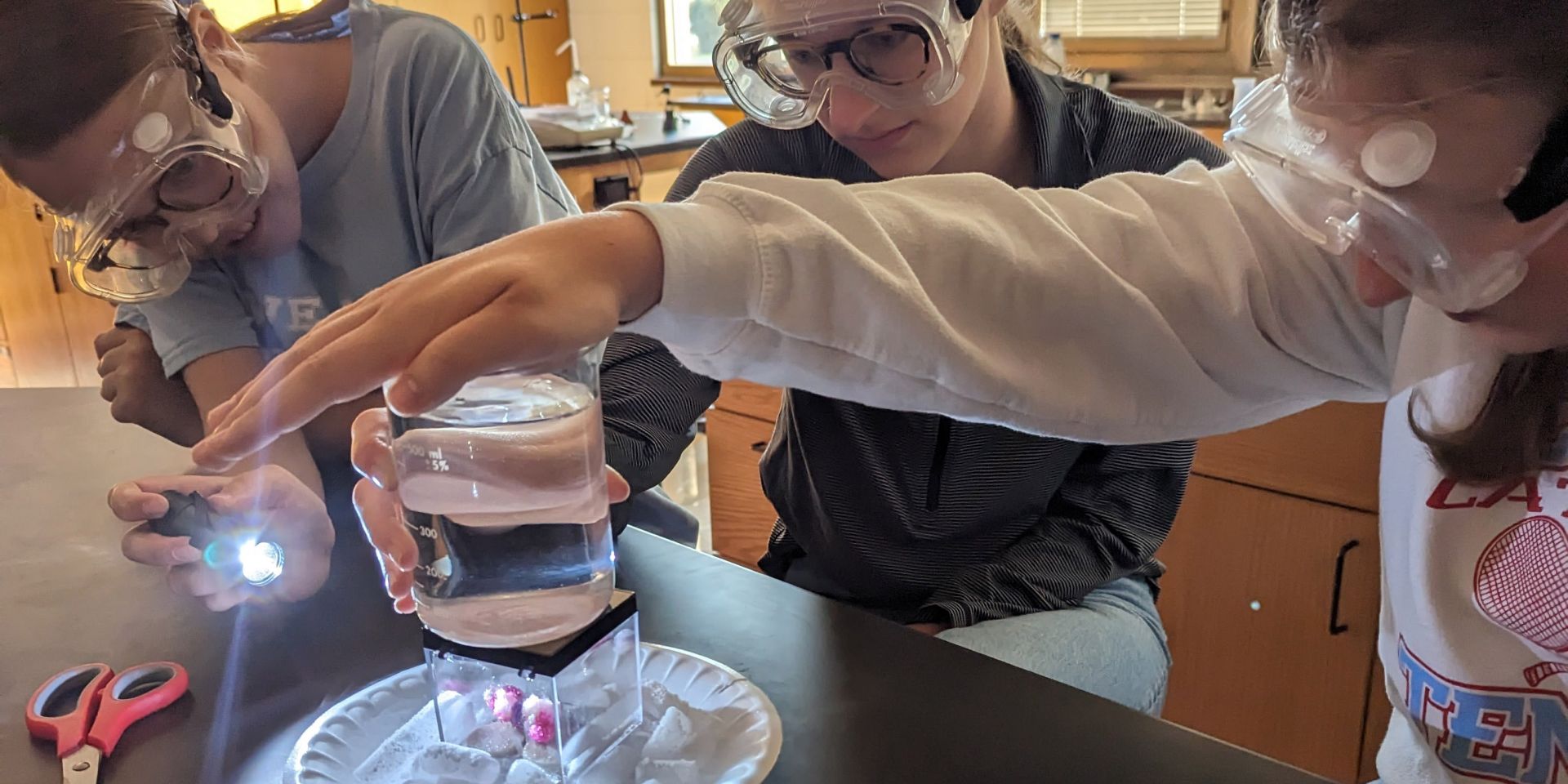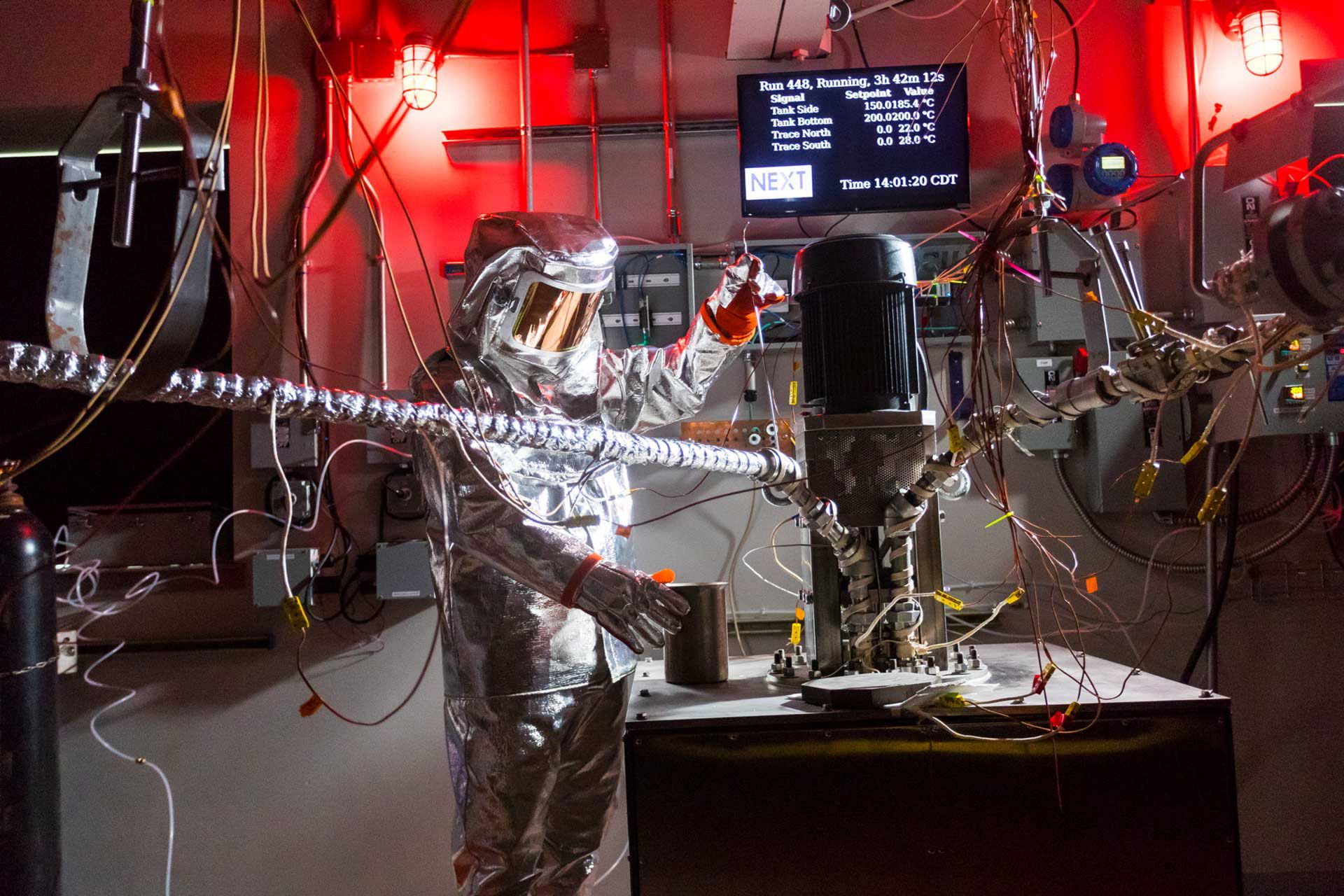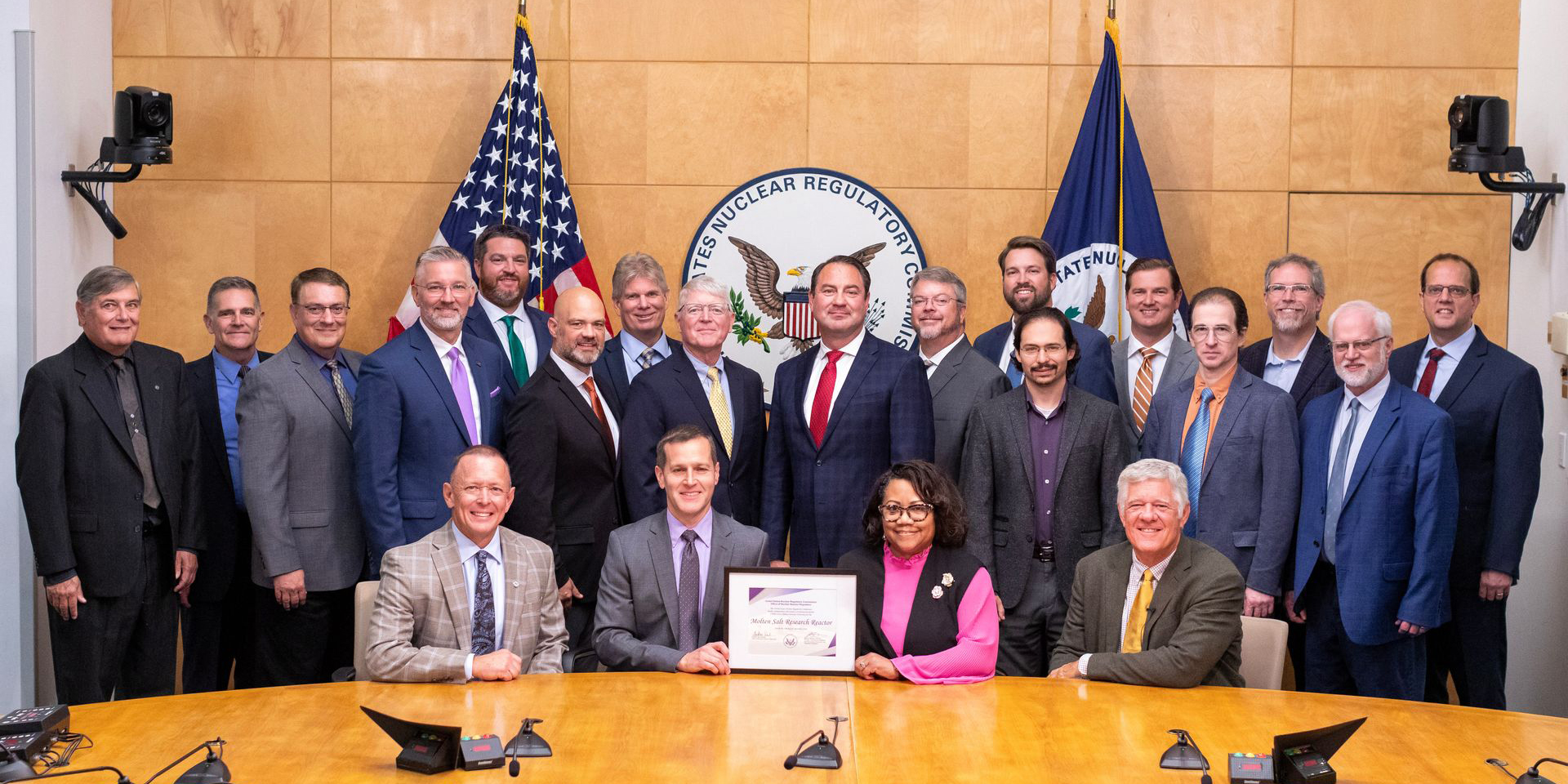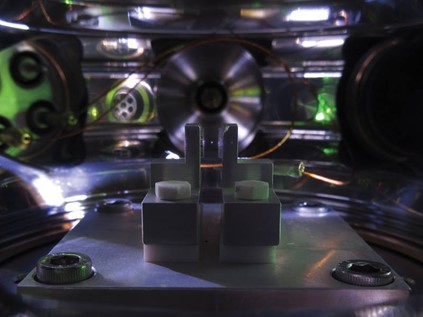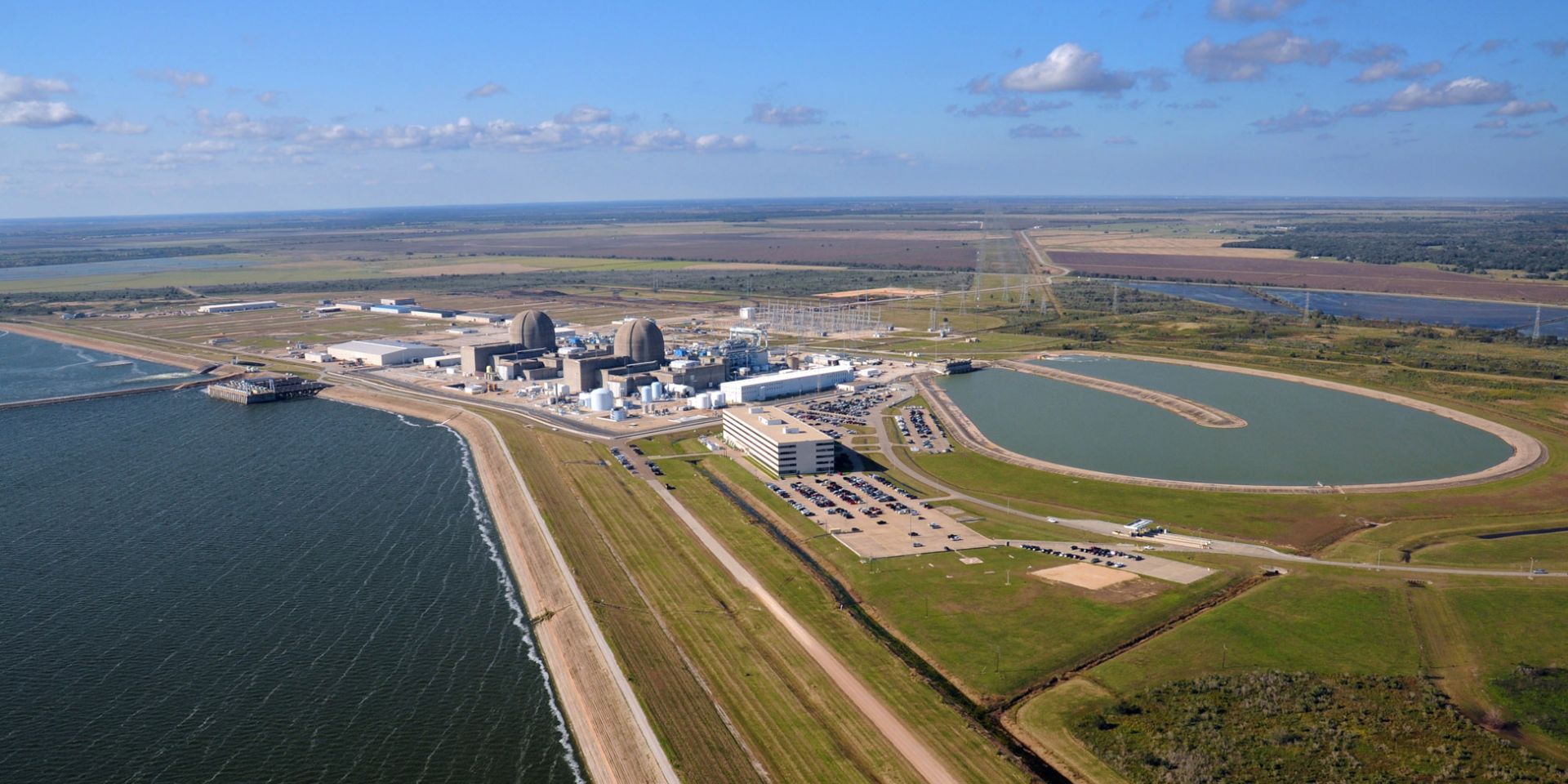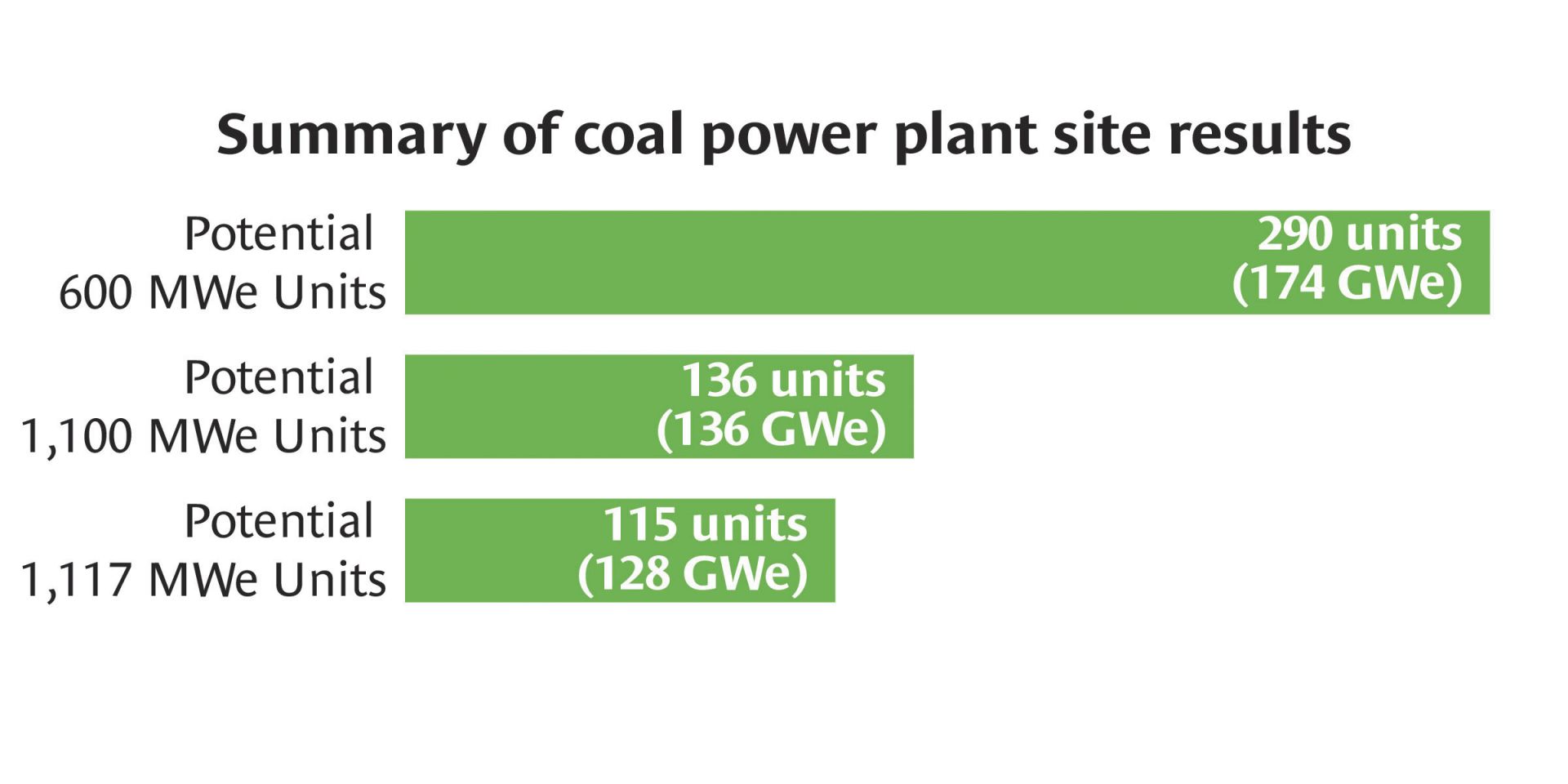Turkey Point nuclear power plant. (Photo: FPL)
The Nuclear Regulatory Commission announced this week that it has restored the expiration dates of Turkey Point nuclear power plant's Units 3 and 4 subsequent license renewals (SLRs) to July 19, 2052, and April 10, 2053, respectively.
The Waste Isolation Pilot Plant in southeastern New Mexico. (Photo: DOE)
Juno Beach, Fla.–based NextEra Energy Resources Development has been selected to enter realty negotiations for a large-scale solar electricity generation project at the DOE’s Waste Isolation Pilot Plant (WIPP) in southeastern New Mexico as part of the department’s Cleanup to Clean Energy initiative.
Students using an ANS Visualizing Radiation Cloud Chamber. (Photo: Grace Stanke)
Nuclear science and technology is uniquely positioned to be a gateway for curiosity and exploration for students in grades K–12. Its study examines the literal fabric of reality, it has applications from the tiniest to the grandest of scales. It’s a constantly evolving industry with a bright future of discoveries and new technologies, and it’s an essential factor in our global effort to reduce carbon emissions and transition to cleaner energy sources. Frankly, learning about and doing things with atoms is pretty cool, from a kid’s perspective.
Crews with the Idaho National Laboratory Site’s IWTU replace filter bundles inside the unit’s process gas filter. (Photo: DOE)
The Department of Energy’s Office of Environmental Management announced yesterday that waste processing operations have resumed at the Integrated Waste Treatment Unit (IWTU) at the Idaho National Laboratory Site. The resumption of operations follows the completion of two maintenance campaigns at the radioactive liquid waste treatment facility.
(Image: City of Idaho Falls)
Microreactor developer Aalo Atomics and municipal electric utility Idaho Falls Power have developed a memorandum of understanding that could lead to the siting of seven sodium-cooled microreactors and a power purchase agreement for Idaho Falls.
The NEXT Lab at ACU has been built to house and test the university’s new molten salt reactor design. (Photo: Rusty Towell/ACU)
I really think so. Especially after visiting Abilene Christian University’s new Dillard Science and Engineering Research Center, the home of the Nuclear Energy Experimental Testing (NEXT) Lab and where the university will test its new molten salt research reactor design. The visit was part of the 12th Thorium Energy Alliance Conference. NEXT Lab director and program manager Rusty Towell anticipates that the research reactor will be operational in two years, and I believe it will. What was most impressive is that the reactor is suited to be scaled to any size from small to large—a key feature in any decarbonized world.
Representatives from Natura Resources, the Zachry Group, Abilene Christian University, the University of Texas–Austin, Texas A&M University, and the Georgia Institute of Technology with the construction permit at NRC headquarters. (Photo: Natura Resources)
The Nuclear Regulatory Commission issued a construction permit yesterday to Abilene Christian University, giving ACU and its partners the go-ahead to build the Molten Salt Research Reactor (MSRR) facility on its Abilene, Texas, campus. The 1-MWt research reactor is the first molten salt–fueled reactor to get a construction permit from the NRC. After Kairos Power’s Hermes, it is the second non–light water reactor construction permit issued by the NRC.
TMI-2 Community Advisory Panel board chair Dave Allard at the panel’s September meeting.
The Pennsylvania Department of Environmental Protection (DEP) expressed its confidence in the decommissioning work taking place at the damaged Three Mile Island Unit 2 during a recent meeting of the TMI-2 Community Advisory Panel (CAP). “We cannot be more pleased with the progress being made,” said Dwight Shearer, director of the DEP, during the meeting, held on September 13 in Middleton, Pa.
In this illustration of oscillating UCl3 bonds, neutrons produced at the SNS (purple dots) scatter off molten UCl3 (depicted in green), revealing its atomic structure. Yellow and white shapes simulate data and represent the oscillating UCl3 bonds. (Image: Alex Ivanov/ORNL)
New research into the dynamics and structure of high-temperature liquid uranium trichloride (UCl3) salt—a potential fuel for molten salt reactors—has been published in the Journal of the American Chemical Society. A recent news release from Oak Ridge National Laboratory describes how researchers from ORNL, Argonne National Laboratory, and the University of South Carolina used ORNL’s Spallation Neutron Source (SNS) to document the unique chemistry of liquid UCl3 “for the first time.”
An optically trapped microparticle in high vacuum is visible as a white dot levitated between two lenses, which are used to focus and collect invisible infrared laser light used to trap the particle. (Photo: DOE/Yale Wright Lab)
Start talking about dust in a vacuum, and some people will think of household chores. But dust has featured in recent nuclear science and engineering headlines in curious ways: ITER is deploying oversized dust covers inspired by space satellites in the south of France, while at Yale University, researchers have watched every move of a dust-sized particle levitating in a laser beam for telltale twitches that indicate radioactive decay.
Tennessee is serious about nuclear energy.
The Volunteer State’s governor and representatives have made clear their intention to position Tennessee at the forefront of a nuclear energy growth surge over the next several years. They’re making the financial investment to back up this commitment, pledging $50 million to recruit the innovative and invest in the existing nuclear companies in the state.
In an interview with advocacy group Nuclear Matters, Gov. Bill Lee expressed his excitement and optimism for Tennessee’s nuclear future.
“Tennessee is one of the fastest growing states in the country,” he said. “Because of that, we have people and companies moving here and we need to have a dependable, reliable energy source.”
Data from Table 1 from DOE’s SA&I report shows the potential new nuclear generation at 145 coal power plant sites with nameplate capacities above 600 MWe. (Source: DOE, Evaluation of Nuclear Power Plant and Coal Power Plant Sites for New Nuclear Capacity)
The Department of Energy’s Office of Nuclear Energy has released a new report estimating that there may be the potential to install 60 GWe–95 GWe of new capacity at currently operating and recently retired nuclear power plants in the United States. The report also evaluated the potential of building new nuclear plants near current and retired coal power plants. The report, titled Evaluation of Nuclear Power Plant and Coal Power Plant Sites for New Nuclear Capacity, was prepared as part of DOE-NE’s Systems Analysis and Integration (SA&I) campaign.
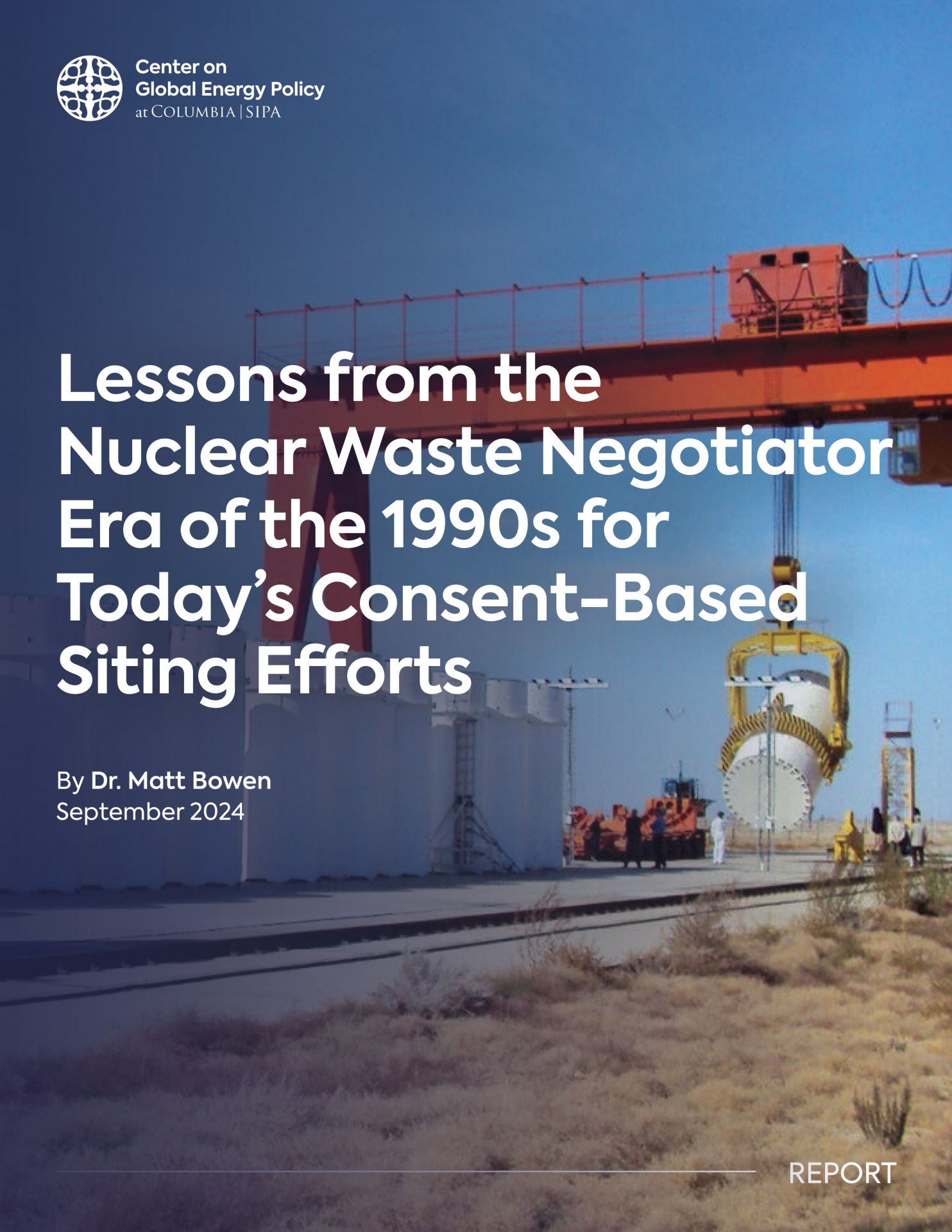 As the Department of Energy embarks on its consent-based process for siting a geologic repository for spent nuclear fuel and high-level radioactive waste, a new report from the Center on Global Energy Policy at Columbia University SIPA highlights relevant lessons from the federal government’s now defunct Office of the Nuclear Waste Negotiator.
As the Department of Energy embarks on its consent-based process for siting a geologic repository for spent nuclear fuel and high-level radioactive waste, a new report from the Center on Global Energy Policy at Columbia University SIPA highlights relevant lessons from the federal government’s now defunct Office of the Nuclear Waste Negotiator.

